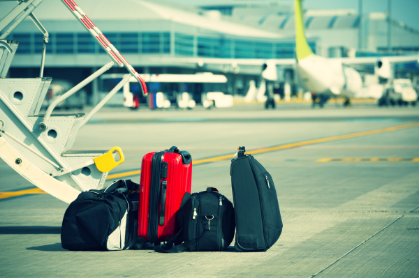Most travelers conduct extensive research before embarking on trips, seeking out the best rates for hotels and airfare, and planning excursions. Travel risk, however, is one factor often overlooked.
When determining travel risk for a particular country, many turn to the website travel.state.gov, maintained by the U.S. Department of State. The site offers a quick initial snapshot to help evaluate travel to less than favorable areas of the world. While travel.state.gov is a good resource for travelers, understanding what is meant by the various types of alerts and warnings is essential. To make a fully informed decision, travelers should also refer to other public and private sources of travel information. (Read about Global Rescue’s GRIDSM travel intelligence system and our new mobile app below.)
Understanding State Dept. Warnings
The Department of State groups information in two major categories, Travel Warnings and Travel Alerts.
Travel Warnings are issued when the State Department wishes to advise travelers to consider very carefully whether they should travel to the country at all. These warnings are issued for reasons including: government instability, civil war, ongoing intense crime or violence, and the frequency of terrorist attacks. While some of these warnings have been in effect for years, we are told the regions are continuously reevaluated.
Travel Alerts are issued for short-term events which may occur or have already occurred. For example, an election season that may trigger strikes, demonstrations or disturbances will be noted. Health events, such as a disease outbreak, also fall into this category. The risk of a probable terrorist attack may lead to the State Department’s assigning a country a Travel Alert.
Travel Warnings and Travel Alerts are valuable initial indicators that countries under consideration by travelers may need additional research prior to travel. When reviewing a Travel Warning or Alert, read carefully and become familiar with key words and phrases to develop a solid working knowledge of the site. Note words and phrases including: recommends, strongly recommends, avoid travel, warns against travel and current security, ongoing security event and situations. These words and phrases are used together in combination to indicate an overall severity of the situation in that particular country.
It is also very important to note how the Department of State advises government workers. When evaluating travel to a less than desirable area, notice how government workers are advised to proceed. If they are advised not to go, or to proceed only if advised or if conducting an official duty, then it is a very clear indicator that travel there as an individual is ill-advised. In most cases when government workers are advised not to travel, it is because it would be very difficult to support them in some type of security situation since the U.S. Embassy in the country is already operating at a diminished capacity due to that situation.
To keep Global Rescue members informed about global events and travel risks, we developed a travel intelligence system called GRID. A unique online resource, GRID is supported by our intelligence analysts and offers up-to-the-minute information on medical and security events around the world. Members can read detailed destination reports, including such information as country risk ratings and security risk overviews. Access to GRID is a benefit available to all Global Rescue members.
We also recommend that members download the new Global Rescue app. It puts critical medical, security and other essential travel information at your fingertips. In an emergency, the app puts Global Rescue members in immediate contact with the medical teams and military special operations veterans who staff our global operations centers. The Global Rescue app is designed for iOS (iOS 5 and above), Android (4.4 and above) and BlackBerry (10.2 and above) platforms. The app is now available on the App Store, Google Play, and Blackberry App World.
For more information on the Global Rescue app or our services, call 617-459-4200 or visit www.globalrescue.com.
Stay informed and travel safely!









